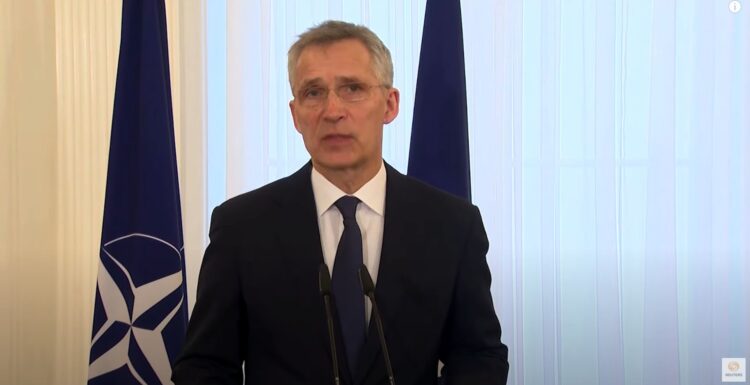Russia’s full-scale war and invasion of Ukraine has become one the most condemned invasions in modern history, and the international community’s responses have been appropriate. Enacting an imperial war of conquest, Moscow has paid the price of its actions by becoming the most sanctioned nation on Earth, and dozens of countries have flocked to supply Ukraine with weapons to reclaim their country.
With the most recent United Nations vote of over 130 nations calling for Russian Forces to withdraw from Ukraine. The message has been sent along with NATO rallying behind Kyiv for the long haul: indefinite occupations and annexations cannot be allowed currently, but this has happened under NATO and the EU.
A Lesson from Cyprus
Forty-nine years ago, three of NATO’s most influential members, Turkey, the United States, and Britain, conspired together in one of the most cataclysmic invasions during the Cold War in Cyprus, in 1974.
Cyprus, which had a Greek majority for three millennia, had passed under the suzerainty of several great powers in history. These were the Assyrians, Persians, Macedonians, Romans, Crusaders, Venetians, Ottomans, and the British. The UK had ruled Cyprus since 1878 but formally placed it as a colony in 1925 and was deeply unpopular amongst the Greek Cypriot majority compared to the Turkish Cypriot minority, leading to armed clashes for several years.
Eventually, after Cyprus received independence, ethnic violence heightened as the Greek Cypriots wanted to unite with Greece, and the Turkish Cypriots wanted an annexation by Turkey or a permanent British military presence at minimum. Both sides would form militias, resulting in civilian massacres and towns being split on ethnic and religious tensions.
The two leading NATO members, the US and UK, were asked to stem the violence, but ultimately the isle fell into a Cold War political chessboard. With the fall of the CIA-backed Greek Junta, the isle went through a devastating invasion, splitting the nation into another occupation.
The 1974 Invasion was commenced by Turkey, with the backing of the United States and the United Kingdom—which Bill Clinton would later formally acknowledge and apologize for. Nonetheless, Soviet influence would gradually make its way into Cyprus, and Russian oligarchs had used the isle for money laundering operations for decades.
Though many Cypriots on the island and in diaspora still hold lukewarm opinions on US foreign policy, slow efforts have been made to mend the relations between Washington and Nicosia. However, the major obstacle today is the status of Turkey’s prolonged occupation, which neither NATO nor the EU has taken conclusive actions to mitigate.
US Military Build Up
Over the past few years, the American military has built up military bases across the Mediterranean, including the Navy’s Sixth Fleet, which has been used for deterrence against Russia in the Eastern Mediterranean and enhanced partnerships between Greece and Cyprus.
While the American Armed Forces have made strides in partnership with the Hellenic Military and Cypriot National Guard, relations with Ankara, have soured over the past decade.
At the height of the Syrian War and ISIS’ reign of terror, the Defense Department, signaling Turkey was not fully committed to combating the terrorist organization, instead armed, trained, and financed Syrian Kurds, who made up the bulk of the Syrian Democratic Forces (SDF). This greatly angered Ankara and caused a rift in relations between both NATO members.
Already have an account? Sign In
Two ways to continue to read this article.
Subscribe
$1.99
every 4 weeks
- Unlimited access to all articles
- Support independent journalism
- Ad-free reading experience
Subscribe Now
Recurring Monthly. Cancel Anytime.
Other geopolitical disputes, such as Turkey’s aggressive stance in the Mediterranean, its growing close relations with Kremlin, and allowing Russian weapons to bypass the Bosporus have put DC’s relations with Ankara at a near low.
Though Turkish elections are coming up with the possibility of Erdogan’s autocrat AKP (Adalet ve Kalkınma Partisi) party could be disposed of, there were still tensions, as seen with Ankara’s blackmail over F16s by holding Sweden’s NATO bid hostage—something almost all Turkish parties agree on due to Stockholm being a sanctuary nation for Kurdish and Turkish dissidents.
The lack of attention to amend and send a strong response to Turkey regarding its ongoing occupation of Cyprus and potential plans by Ankara to annex the occupied northern regions has become a significant policy failure of the NATO military alliance. The double standard towards upholding international law when it happens in the West’s backyard has only emboldened autocrats to continue pursuing a war of conquests.
With China attempting to upend the US by enticing former close American allies into their geopolitical fold and present itself as a top player that “respects” international law, now is the time for Washington to re-image itself and right its wrongs over a negligent foreign policy that only gave new life to rogue regimes.










COMMENTS